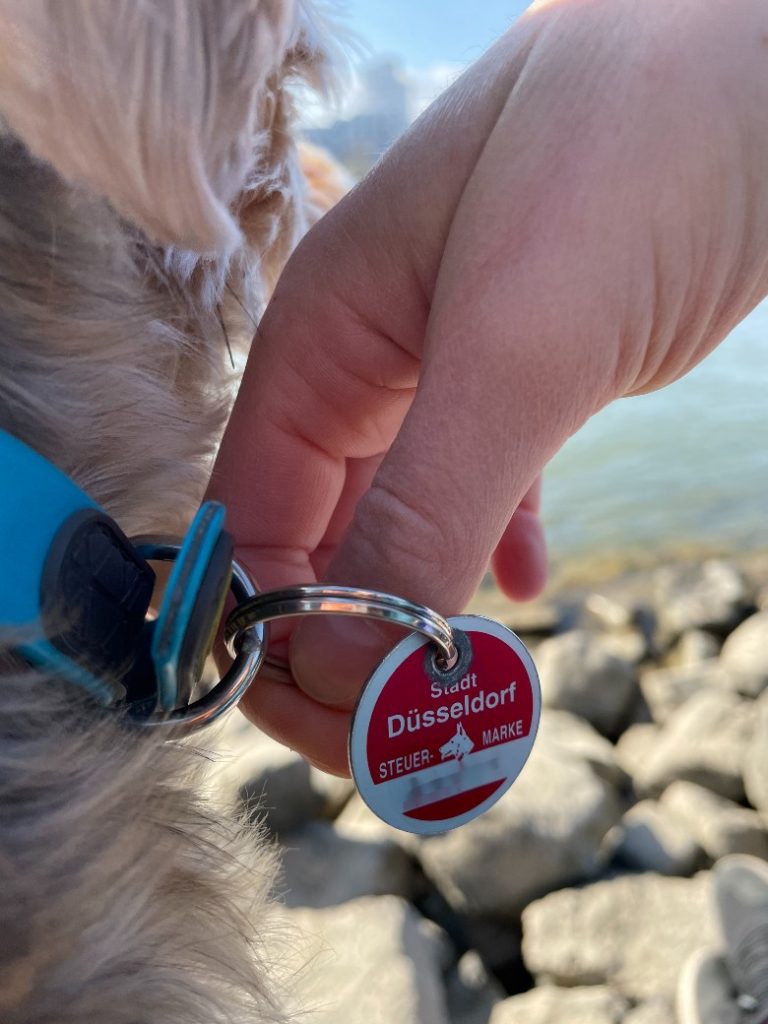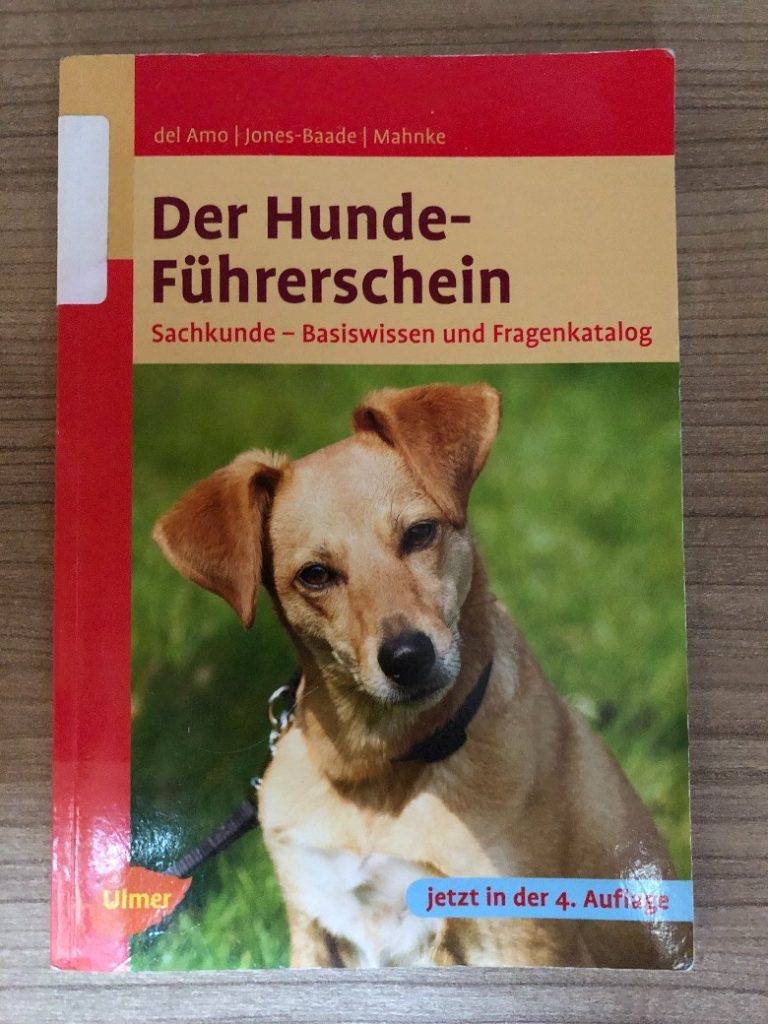Dogs in Germany are a person’s best friend. They play a big part in Germany’s society and are thus well regulated. As a (future) dog owner, you need to know what steps to take and which rules to follow to enjoy your dog’s companionship to the fullest. In this guide, we will cover everything you need to know about dogs in Germany.
Is Germany a dog-friendly country?
Yes, Germany is a very dog-friendly country, in which the registered 10,7 million dogs are enriching their family’s lives. After cats (15,7 million), dogs are the second favorite pet of Germans. There are many places, including most restaurants and cafes, where you can take your dog with you. Ideally, you ask a restaurant owner beforehand, though.
However, supermarkets or bakeries do not allow dogs, just like most governmental institutions. Dogs are also not allowed on children’s playgrounds and public beaches; you can sometimes find specific dog beaches instead. You will mostly see a sign that says ‘Wir müssen draußen bleiben‘ (we have to stay outside) with a dog next to it.

The well-being and respectful treatment of dogs is quite important in Germany and supported by protective laws, such as the ‘no-kill policy, which does not allow animal shelters to kill dogs.
How to bring your dog to Germany?
Bringing your dog with you to Germany has very strict straightforward rules, following EU customs guidelines. You are allowed to bring up to five dogs for non-commercial reasons from outside the EU with you by following these rules. Your dog has to:
- Carry a microchip (compulsory for new markings since July 3, 2011) or tattoo
- Be fully vaccinated against rabies including vaccination certificates
- Have an official veterinary certificate (dog passport), certifying the above two points with the respective numbers
If you are moving and bringing your dog from a country where the infection of rabies is more likely or unknown (e.g., Turkey, Egypt, Morocco, Tunisia, Thailand, or India), your dog must additionally get a rabies antibody test via a blood test. This test can only be done at least 30 days after the rabies vaccination and needs to be done at least three months before entering the EU.
Additionally, you need to announce your dog when importing them to Germany so that the documents can be checked accordingly. A friend of ours brought her dog from Mexico without any difficulties.

For more in-depth information on flying with your dog to Germany, check out our guide below.
Read Our Related Guide
Buying a dog in Germany
Buying a dog in Germany can be more complicated than you think and is far from going to the closest pet handler and simply picking one up. Especially since 2020, when the demand for dogs and pets in general increased like never before during the Covid crisis. The consequence is longer waiting times, higher prices, and, unfortunately, an even bigger black market.
Where to buy a dog in Germany?
You have three options for buying a healthy and legal dog in Germany.
1. With a registered breeder
You can look for breeders (Züchter) in your area via the official German dog breeder association (VDH). Only breeders who are official members of the VDH can legally sell dogs.
2. From a pet shelter
There are various animal shelters (Tierheim or Tierschutzverein) in Germany, who rescue animals in need and look for responsible and matching new homes.
3. Privately from friends
The easiest and cheapest way is to adopt a pet from friends with a pregnant dog at home. So it never hurts to let your colleagues and friends know about your wishes to get a dog.
Where not to buy a dog in Germany?
You can find multiple online platforms and social media channels selling dogs, which must not all be bad. However, we encourage you to be extra attentive and diligent when looking for a dog on these platforms. You may come across illegally imported dogs, who have been taken away from their mother only after a few weeks (8 weeks is the legal minimum in Germany), who are under nurtured and often sick.
Appropriate breeders are interested in getting to know you as a person. They will allow visits to see the puppies and their mother and the room they are growing up in (Welpenzimmer). They will also have dewormed the puppies several times and provide you with a purchase contract (Kaufvertrag) and health & vaccination record.
You should be suspicious of any too good to be true advertisements, no breeding license, too low or too high prices, and sketchy dog delivery practices.
Negative Real-Life Example Of Buying A Dog In Germany
In March 2021, a Mexican friend of ours (who unfortunately didn’t know any better) bought a dog from Hungary online for a horrendous price. The dog was announced to arrive around 10 pm; however only actually arrived around 12:30 am in a Sprinter van huddled in a transport box together with 30-40 other dogs in transport boxes. We estimate for them to have been in that van without food, water, or a chance to release their nature calls for about 20 hours, driving from Hungary all across Germany and delivering illegal dogs.
Five minutes after she had finally welcomed her new furry friend, the police rang at her door and searched her apartment. They had also stopped the sprinter van and arrested the two drivers. As you can imagine, our friend received a huge shock and took some time to understand what was happening.
The police took the documents of her dog to inspect them, and luckily after a few days, she was allowed to keep the dog, and the papers turned out to be ok. If the papers had not been ok, she would have needed to pay a 5,000 euros fine and her dog would have most likely been taken away from her!
Thank you for educating yourself and not supporting illegal dog trafficking from abroad.
What dogs are banned in Germany?
There are four dangerous dog breeds (Kampfhunde), considered category 1 dogs, which are not allowed to be imported to Germany or held in Germany unless you have a specific license, which involves an incredibly high amount of bureaucracy and costs. These are the four banned dog breeds in Germany (including any mixed breed) as listed on the official customs page of Germany:
- Pit Bull Terrier
- American Staffordshire Terrier
- Staffordshire Bull Terrier
- Bull Terrier
Next to these dangerous breeds, each state in Germany holds a list with additional dangerous dogs, such as the Rottweiler. They are often considered category 2 dogs, which means these breeds are considered dangerous until proven otherwise, for example, with a character test. If you want to hold a dangerous dog in Germany, you need to be prepared for a lot more bureaucracy and requirements.
What are the most popular dogs in Germany?
According to Statista and the German Dog Association, the German Sheperd is by far the most popular dog breed in Germany. Followed by the Dachshund, German Wirehaired Pointers, Labrador Retriever, and Golden Retriever.
Owning a dog in Germany
Owning a dog in Germany definitely comes with responsibility, whether societal, financial or regarding the dog’s well-being. Whether you can hold a dog in the flat you are living in, depends on your rental contract. We suggest that even if your rental contract doesn’t specify pet ownership, you inform or ask your landlord for permission before getting a dog.

Especially when you are getting a puppy, attending a dog school is quite common in Germany. Hence, dogs in Germany are generally well-behaved. Respectful behavior is expected of dogs in Germany, so be sure to train your furry friend properly.
Dog rules in Germany
Once you are the lucky owner of your new furry friend, you, of course, have to follow certain rules; after all, you are living in Germany. So here are the 7 most important rules when owning a dog in Germany:
1. Check Whether You Need a ‘Dog License’
All German states require you to have a dog license (Hundeführershein) when owning a dangerous dog. However, in Lower Saxony, you must have a dog license for any dog you own. In North Rhine Westfalia, you must pass a competence exam (Sachkundebescheinigung) when having a dog with a shoulder height of more than 40cm or a weight of more than 20kg.
Such a competence exam is a theoretical multiple-choice test, which you can also pass in English. On the official website, you can find vets who are certified to hold this test.
2. Register your dog with the local authorities
You have to register your dog at your Bürgeramt or similar within 2-4 weeks (varying between cities) after buying or importing your dog. You will need to give details of your dog, and in some states, you need to have purchased dog liability insurance before you can register the dog.
In a lot of cities, you can do so online. Here are the links for registering your dog online for the biggest expat cities in Germany:
Berlin (you have to send the form via email or postal mail)
Munich (online)
Hamburg (online)
Frankfurt (you have to send the form via postal mail or register in person)
Düsseldorf (online)
Stuttgart (online)
3. Pay the dog tax
As with a lot of things in Germany, there is of course a dog tax as well. With registering your dog, you automatically register to pay the dog tax, which is 90-150 euros a year on average, depending on the city you are living in and your dog breed.
4. Your dog has to wear the city’s dog tag
After registering your dog, you will receive a dog tag (Hundemarke) from your city, which your dog needs to carry on their collar when in public.

5. Your dog needs to be microchipped
In some states in Germany, it is a requirement; in others, a recommendation. Ideally, your dog is already chipped when you buy it. You should register your dog for free with TASSO, Europe’s biggest pet register. They help find your dog, in case you ever lose them. You will also receive a TASSO dog tag, which your dog should wear.
6. Pick up the dog poo
When walking your dog, you need to pick up the poo. If you get reported not doing so, you may get a fine of 10 to 150 euros.
7. Mandatory leash – yes or no?
There is no common law for all of Germany, as each state regulates the obligation to leash your dog (Leinenpflicht) differently. In Berlin and Lower Saxony, you are only allowed to unleash your dog if you hold a dog license (Hundeführershein). You can either get it at a dog school or self-study and take the exam individually. We suggest that you inform yourself about the rules in your city and state to avoid unnecessary fines.

In August 2020, the German government made a new proposal, which suggests that dog owners need to walk their dog at least twice a day for a total of one hour. It also prohibits keeping dogs exclusively on a chain. This new law has not been passed yet, though.
Dog insurance in Germany
In Germany, you as a dog owner are 100% liable for damages or injuries caused by your dog. Six out of sixteen states make it mandatory for you to have dog liability insurance. To be honest, I would never have a dog without having dog liability insurance, as you simply cannot predict your dog’s actions, no matter how well trained they are.
Getsafe, a modern insurance provider offers dog liability insurance all digital and in English. With our special Getsafe code SIMPLEGERMANY15, you even get a 15 euros discount.
- Extremely simple to use
- 100% in English and digital
- Covers up to 20 million euros
- Cancel anytime
Additionally, you should consider getting pet health insurance to cover your vet bills and potentially any needed surgeries. Your most regular visits to a vet should only be for vaccinations; however, the reality is often different. For example, the dog I used to own and the dog we dogsit have been regular visitors at the vet due to allergies, resulting in sickness and accidents.
If you would like more detailed information on dog insurance, please continue to our in-depth guide.
Read Our Related Guide
How much does it cost to have a dog in Germany?
Owning a dog in Germany can cost between 360 and 2.400 euros a year. It highly depends on the dog breed; dangerous dogs are most expensive, while big dogs usually are more expensive than smaller dogs.
Costs you should consider when getting a dog are:
- Purchase costs
- Basic equipment (bed, food & drink bowl, bed, leash, collar, etc.)
- Dog food
- Health care
- Insurance
- Dog tax
- Care products
- Toys
Helvetia has a detailed guide on all costs involved. It is in German, but you can translate the page to English by using Chrome as a browser and selecting translate to English when doing a right-click.
You can reduce your initial cost slightly when choosing a dog from a dog shelter. Instead of paying a purchase price, which can easily lie between 500 to 2.000 euros, you only pay a nominal fee (Schutzgebühr) of around 150 to 400 euros. Additionally, some cities only charge a reduced dog tax or waive it completely for the first 36 months if you adopt a dog from the Tierheim.
Conclusion
As with many things in Germany, being a dog owner can seem to be overwhelming. However, it sounds more complicated than it is. We hope we could give you an overview and better understanding and wish you lots of joyful moments with your furry friend. 🐾






